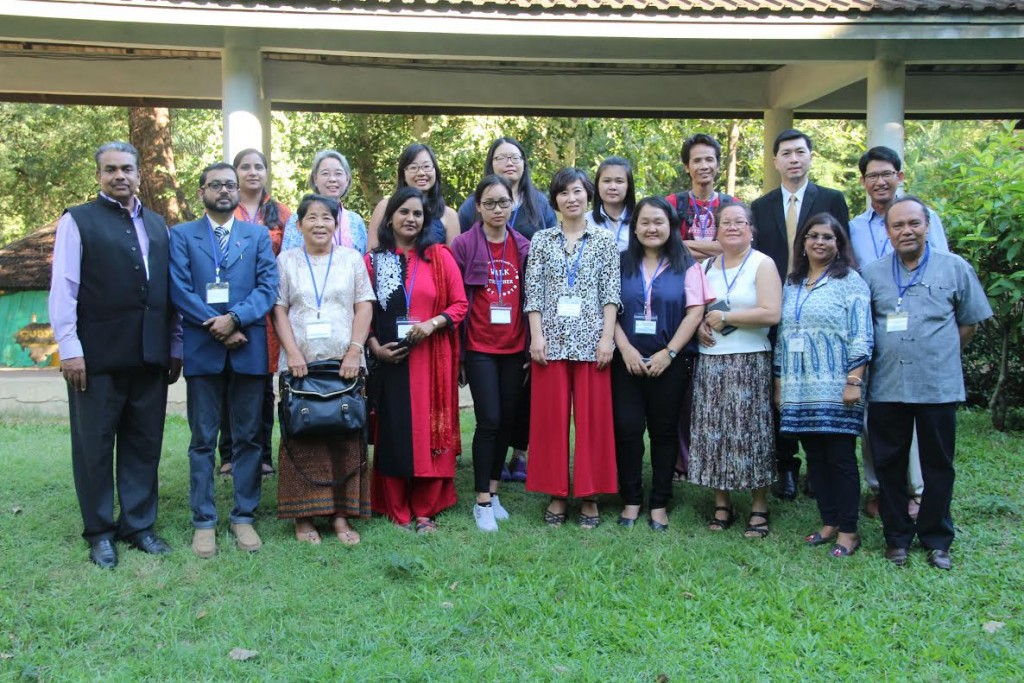Human Trafficking Should be a major concern of Asian Churche's
 The Executive Committee of the Christian Conference of Asia has approved the future program direction of CCA and a new program structure with four key thematic areas. The new program structure will replace the existing program structure which was originally initiated in 1998 and became operational from the year 2000.
The Executive Committee of the Christian Conference of Asia has approved the future program direction of CCA and a new program structure with four key thematic areas. The new program structure will replace the existing program structure which was originally initiated in 1998 and became operational from the year 2000.
The newly constituted Executive Committee which met from 13-16 October at the headquarters of the Church of Christ in Thailand in Bangkok, after detailed deliberations, unanimously accepted the new program structure with effect from January 2016. The focus of the new program structure will have thrusts on areas such as Mission in Unity and Contextual Theology; Ecumenical Leadership Formation and Ecumenical Spirituality; Building Peace and Moving Beyond Conflicts; and Prophetic Diakonia and Advocacy.
While presenting the proposed program structure and strategic program directions CCA General Secretary, Dr. Mathews George Chunakara stated that “the salient features and constitutive elements of CCA’s enduring vision and abiding mandates are still relevant. The acknowledgement and the quest for engagement in responding to God’s call to our obedience of witnessing God’s mission in Asia is deeply rooted within the framework of the wider ecumenical principles. However, what is needed to make the programs of CCA relevant in the emerging contexts is to be responsive to address the current realities”.
The proposed new program structure and activities of CCA will focus on a wide range of activities within the thematic framework of four key program areas. The activities and programs will include mission and witness in a multi-religious context, contextualisation of theology and nurturing of ecumenical theological education, interreligious cooperation amidst growing inter-religious intolerance, ecumenical formation and leadership development, ecumenical spirituality and nurturing of Asian indigenous liturgical traditions, peace and human security, building peace with justice for moving beyond conflicts, peace building training for church workers, advocacy at the U.N on various Asian issues, migration, statelessness and human trafficking, and training in human rights advocacy for church workers.
The new program structure also envisages special focus on women and youth concerns and the proposed programs will include Young Asian Women Theologians Conferences, Women’s Leadership Development and Ecumenical Formation, Ecumenical Women’s Action against Violence (EWAAV), Youth Leadership development, Young Asians for Peace in Asia (YAPA).
Earlier in his report to the executive committee, Dr. Mathews George outlined proposals to organise major ecumenical events during the tenure of the current executive committee until 2020; Asia Mission Conference, 60th Anniversary Celebrations of CCA in 2017, Asian Ecumenical Women’s Assembly, Asia Youth Assembly and Congress of Asian Theologians (CATS) gatherings in 2016, 2018 and 2020. An annual Asian Ecumenical Institute (AEI) with a month-long duration will aim at the ecumenical formation of the younger generation as part of CCA’s new strategic program plans to nurture ecumenism at the grassroots levels.










